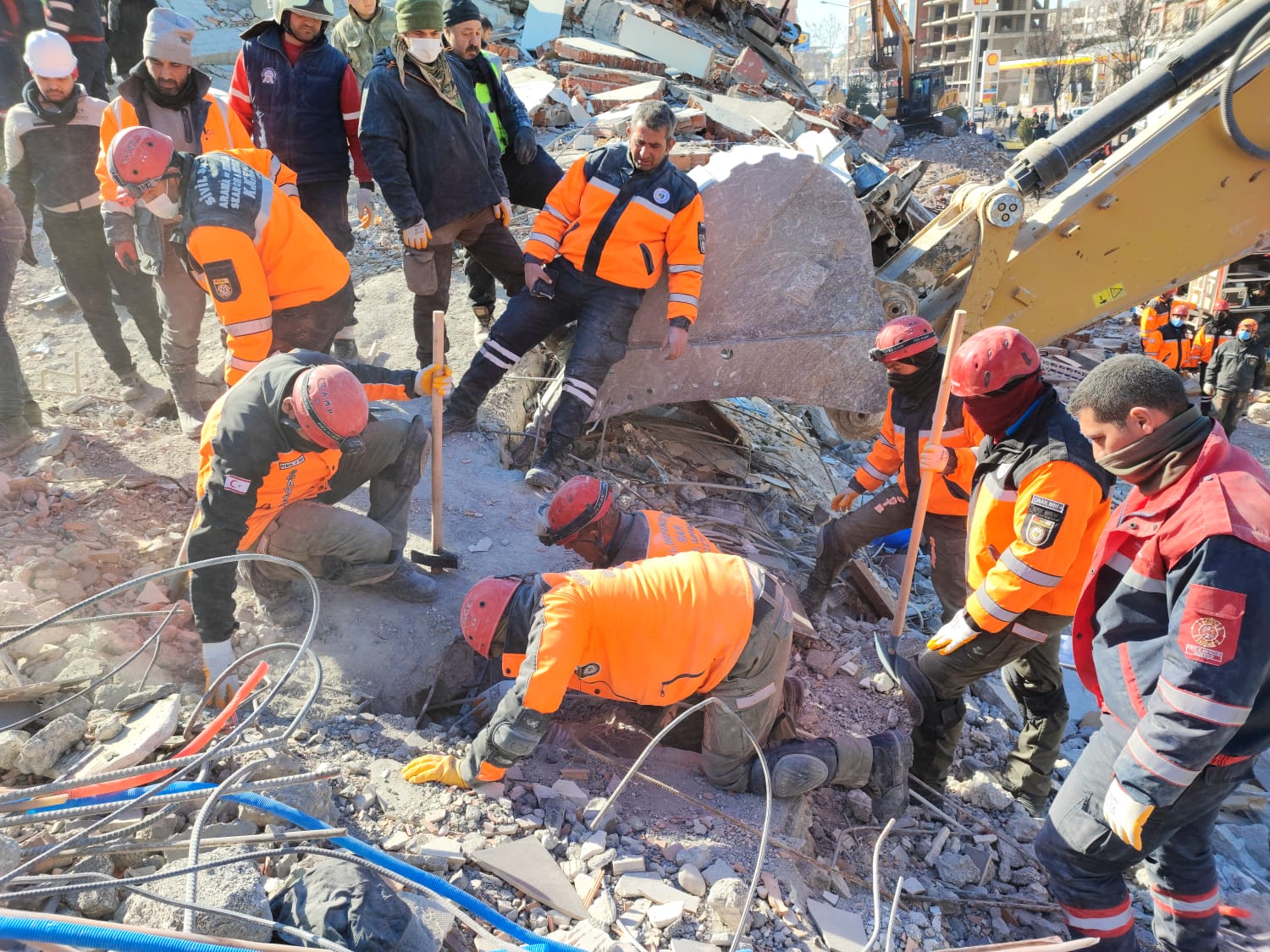The families of the 24 Cypriot children who were killed when the Isias hotel in the Turkish city of Adiyaman collapsed travelled to Turkey on Tuesday ahead of the resumption of the trial of those held responsible on Wednesday.
The 24 children, alongside 11 Cypriot adults and 47 others, were all killed when the hote, collapsed during the earthquakes in the region on February 6 last year. They had been in Adiyaman to attend a volleyball tournament.
The families were joined on Tuesday morning’s flight by many high-profile Turkish Cypriot figures including the north’s ‘education minister’ Nazim Cavusoglu, ‘interior minister’ Dursun Oguz, opposition party CTP leader Tufan Erhurman, and ‘parliamentary’ Isias hotel trial monitoring committee chairman Oguzhan Hasipoglu
‘Prime minister’ Unal Ustel and other high profile ‘MPs’ are also expected to join them in the Adiyaman court’s viewing gallery on Wednesday.
At the most recent hearing in April, Adiyaman’s third highest criminal court ordered that a new university report be written regarding the hotel’s collapse and the 72 deaths.
The report was written by the Dokuz Eylul University in Izmir and is the fourth such report to have been compiled concerning the Isias hotel’s collapse.
The third, written by Ankara’s Gazi University, had generated controversy as it had been much less scathing than the other two, and had led to the release of two of the suspects who had initially been held in custody following the first phase of the trial in January.
The previous two had been written by Trabzon’s Karadeniz Technical University and the Istanbul Technical University, and outlined how sand and gravel from a local river had been used in the hotel’s construction, and how supporting columns had been cut at the hotel, among numerous other deficiencies.
In May, the Adiyaman Provincial governor’s office had given permission for criminal investigations to be launched into the conduct of four retired former civil servants when the Isias hotel’s owners had filed applications for various construction and change of use permits over the years.
It had been found that permits had been given to the Isias hotel which did not comply with the relevant laws, and that information written on permits did not match the work which had been carried out at the hotel.






Click here to change your cookie preferences